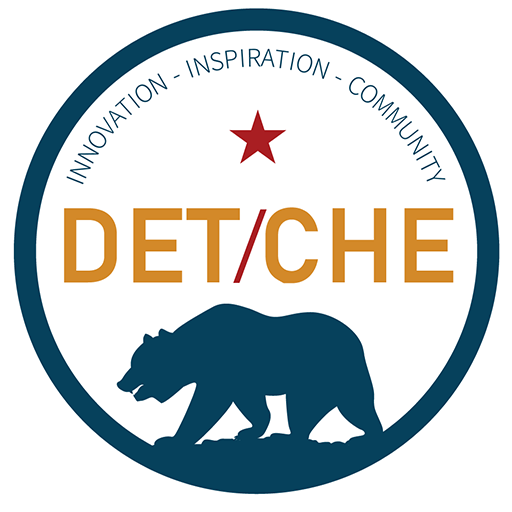
Exclusive to DET/CHE members, we are offering the 2021 DET/CHE Leadership Program!
About The Program
The DET/CHE Leadership Program aims to support DET/CHE members in developing essential leadership skills for higher education. In this eight-month-long, cohort-based program from April to November, participants attend monthly online presentations and discussions led by California higher education leaders. These monthly online events highlight the challenges, successes, skills, and issues facing today’s ed-tech leaders. The program then culminates at the DET/CHE Conference in December, where program participants and the monthly presenters will have the opportunity to meet and connect.
All DET/CHE community members are invited to participate.
Certificate of Completion
All participants may freely attend the monthly speaker sessions and access the shared LMS space.
Participants that wish to earn a certificate of completion must:
Attend all of the monthly leadership program meetings.
- Participate in discussion forums within the LMS space.
- Create a final project that describes a personal leadership plan.
- Share the final project with the other participants.
Registration
All participants should complete the registration form to receive the monthly event details and gain access to the LMS space.
Participants who wish to earn the certificate of completion should complete the optional statement of intent question within the registration form:
Topics & Dates
2023 Cohort
Welcome to the program, meet your cohort, introduction to the Canvas course.
